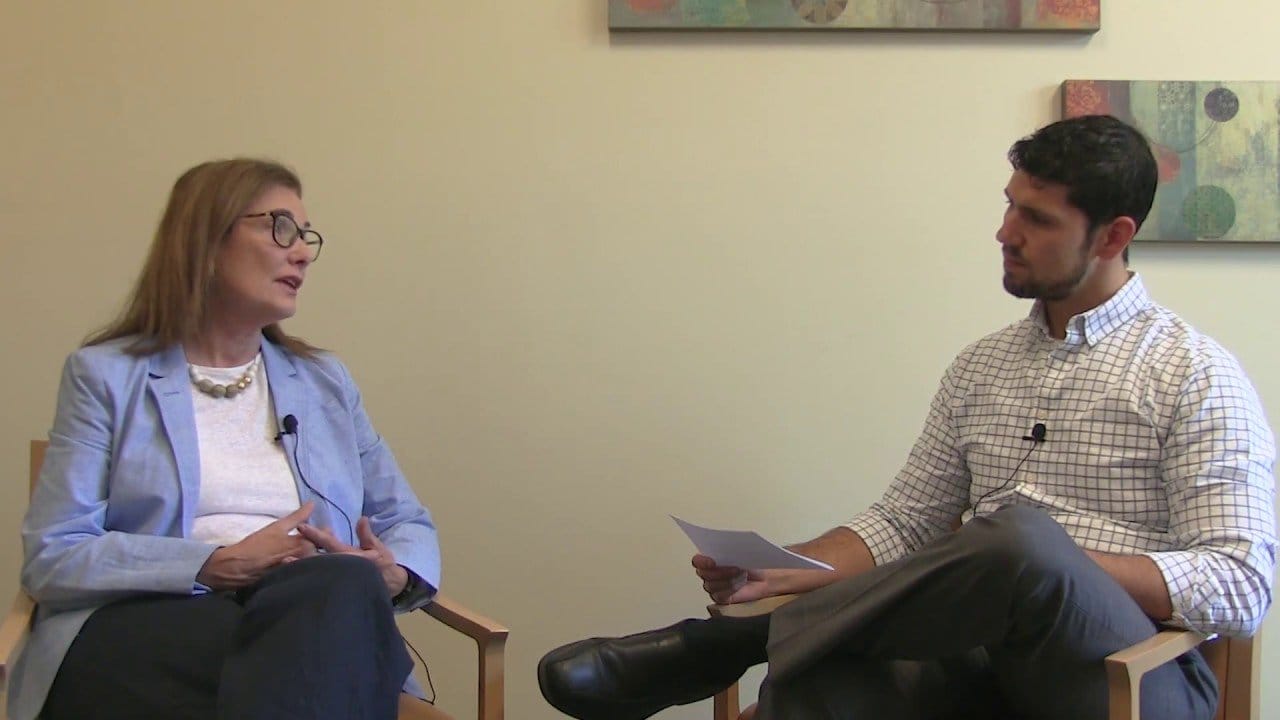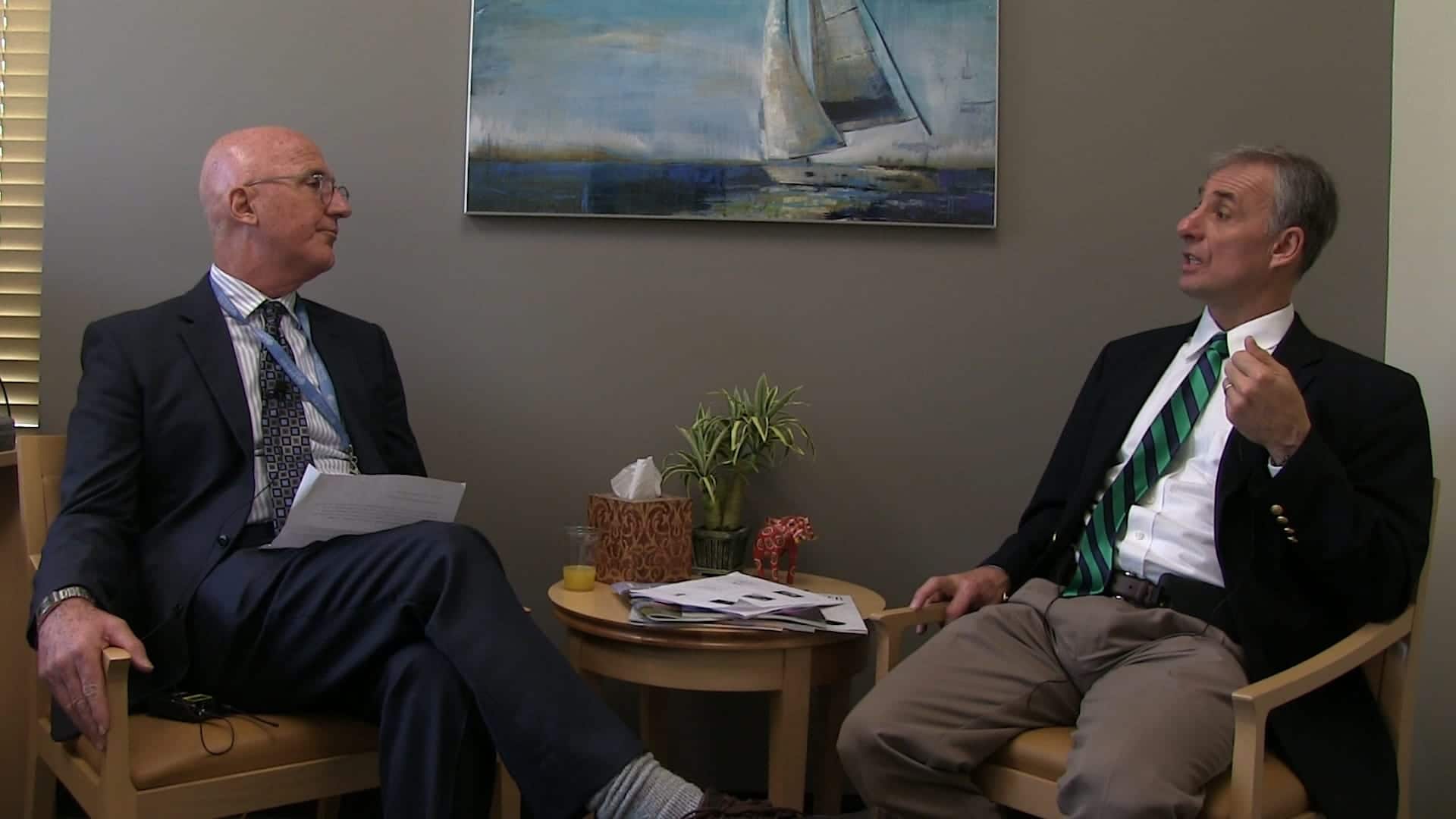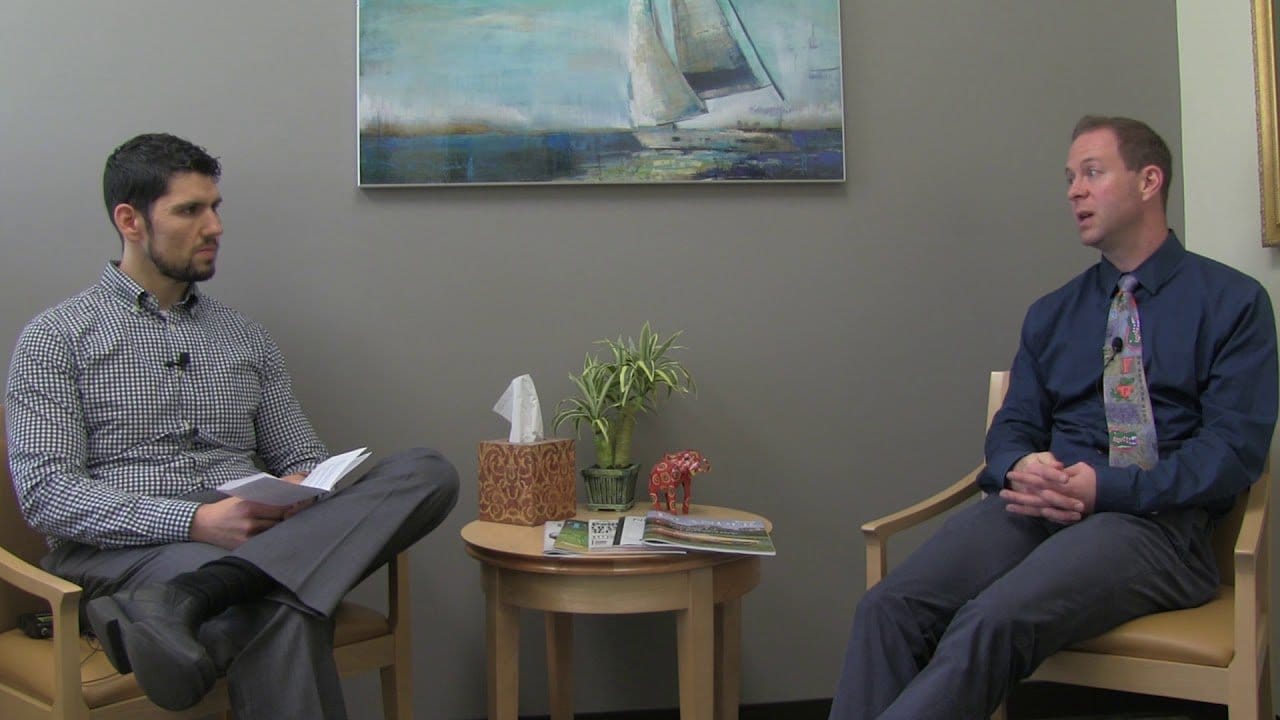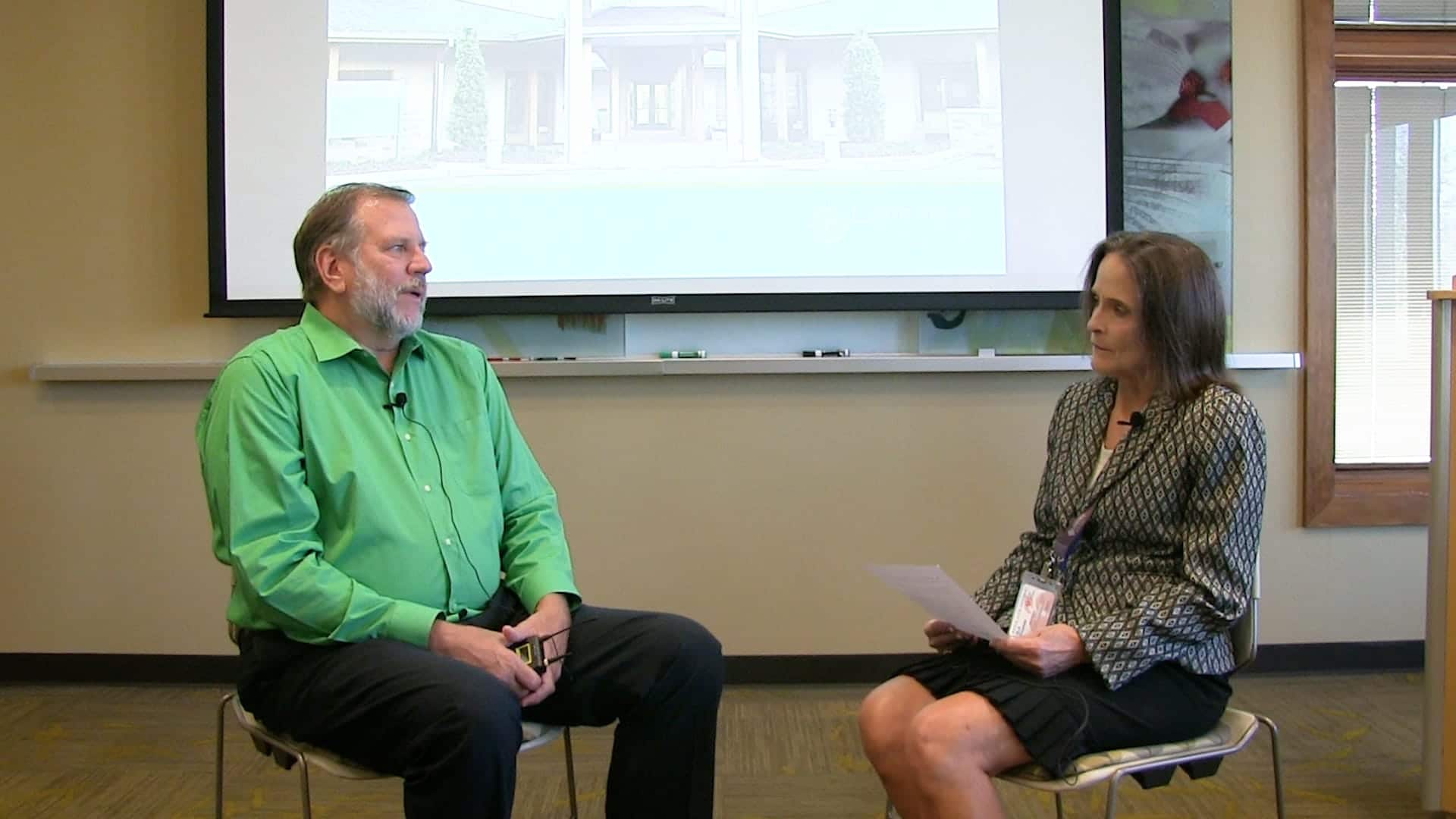In this podcast, Chris Bennett discusses how families are affected by addiction and how talking to them about that can be part of an intervention. He also describes how to measure the success of an intervention and what questions families should ask when vetting interventionists.
Podcast Transcript
Gina Thorne: Hello, everyone, this is Gina Thorne with Lakeview Health and we’re back again with the Lakeview podcast series. We’re joined today with Chris Bennett, of Chris Bennett Interventions. He is a nationally recognized interventionist, based out of San Diego, California, and we’re really excited to have you here today. Chris Bennett: Thanks, Gina. Gina: Before we get started on some of the details of what you do for interventions, can you tell us a little bit about your background and how you got into the field of addiction? Chris: Sure. Well, I come from a long background of substance abuse in my family. So I grew up with uncles, cousins, grandparents who struggled with substance abuse and then it ended up trickling down into my family as well. So both my sister and I ended up getting sober very young. We both got sober at 23. I made a decision at right around 24, about a year and a half sober, about looking into the possibility of working with other people who struggle with addiction and behavioral health disorders, and at that point I began working in treatment in San Diego, at a treatment center that specialized in primary mental health and co-occurring severe disorders. And at that point, I really fell in love with the idea of intervention. I went on my first intervention with who turned out to be my mentor, and I knew at that point that intervention was what I was supposed to do. I think the universe conspired to put me in a position to really show me what my life was to be. So at that point, I began dedicating my life to the actual intervention work and I began going back to school and I became a certified addictions counselor in California, as well as sought out two different credentials specific to intervention-certified intervention professional as well as a board-registered interventionist. So, definitely an interesting path in, but I think it just became kind of—I knew at that moment what I was supposed to do moving forward. Gina: And it sounds like, with personal experience and now professional experience, you obviously understand the nuances of what’s necessary to help motivate people to get help, which is what most interventions are about, really understanding where patients and families are and meeting them where they’re at, which is good. Chris: Completely understandable. I think that one of the main focuses that I’ve always had with intervention work has been the work with the families themselves. My experience had been that when my family began to make changes in their own lives, when they began to heal in their own way, that naturally I was kind of left out on an island, and naturally as a human, I want to be a part of my family. So the idea of not having them in my life, not taking care of themselves caused a lot of internal chaos in my life. So my focus really became very early on, “How can we best work with families and help them to create change in their own lives?” Because naturally what happens is families have a direct impact on each other. Gina: Sort of reaffirming the idea that addiction is not about just the individual but that it’s a family disease. Chris: And when we ask families, we say to them, “Tell me about how you’ve been impacted by your loved one’s behavior?” and it’s a really easy exercise, to ask families how they’ve been—when they say, “Well, what is a family disease? My son is the one who’s sick. My daughter’s sick, but you ask how have you been impacted by your daughter’s behavior?” you get a list of how these families have been impacted, and so that’s a really easy way into these families. When we say, “This is a classic example of why we call this a family disease, because it’s not just affecting your loved one. It’s also affected you in this myriad of ways that you just identified as well.” Gina: Well, I think that’s a great piece to include in the work that you’re doing. So, can you talk through with us a little bit about what you do for interventions? Can you talk a little bit about the Chris Bennett intervention model? Chris: Well, that’s a good question. What we’ve really done – myself as well as the interventionists who work for me – we’ve all been trained in the variety of models. So we go from the Johnson to the ARISE to the family system, back to the field model. And what we’ve done is we’ve taken what we believe is the most effective parts of these different interventions and we’ve really integrated them into what we do. So, if we’re looking at a specific crisis-oriented situation, somebody is potentially on [sic] death’s door, suicidal or homicidal, they have a really high potential for overdose at the time, we may use what we would more consider a surprise type intervention because informing that addict that we’re going to then have a family meeting the following day at 1 p.m., there’s a really great risk that something’s going to happen to them in the next 24 hours. But in cases where there’s not an impending crisis or somebody’s life is at stake, we’re much more inclined to use an invitational type process, which is to basically inform the addict, have a loved one say very clearly, “We love you. You know how concerned we’ve been. This is not a surprise to you. We’ve actually brought in a professional. His name is Chris Bennett. We’re going to have a family meeting tomorrow at 1 o’clock and we would like you to be a part of that meeting. But whether or not you show up, we’re still going to go have that meeting. And we’re still going to talk about you and we’re going to still talk about how we need to heal as a family and what we’re going to do to help you. So we would like you to be a part of that.” And we actually open it to the idea that the addict should be an active participant in this process and not forcing somebody into treatment, not forcing somebody into recovery, but basically inviting them to be a part of the decision-making process and the healing of the family itself. So we will use whatever we believe is going to be the most effective for these families. Gina: So, if somebody’s listening today, wanting to know more about interventions, you know, the question we typically get is, “How successful are you in helping your loved ones?” My question to you is how successful are you as an interventionist? I’m sure questions like that come up all the time when families are vetting interventionists. You know, what’s my potential success rate at getting my loved one into treatment? Chris: I’m not a big fan of success rates. And I’ll be honest, we do outcome studies and we have outcome studies for every year. At the end of the year, we always put together our outcome study. The one thing that if somebody’s listening to this and their question is what is our success rate? I would say our success rate is 75 percent. Now, they might go, “Wow, well there’s a lot of websites out there that you look on where people say their success rate is 98 percent, it’s 88 percent, what does that mean?” So what I always encourage families to do is to ask people, “What is success to them?” Because I do not believe as an interventionist that a success is getting somebody through the door of treatment. I believe that I can get somebody through the door of treatment, all day, every day of the week. And what I would do at that point is I would consider my success rate 98 percent. I would say 98 out of 100 clients I get through the door of treatment. But when I ask a family, “Is that truly successful?” the fact that we got him through, what if they leave five days later? What if they disappear in treatment 30 days later? Is that still a successful intervention? I don’t believe so. I think that our success rate really hinders [sic] on the idea of, not only getting someone through the door of treatment, but them completing treatment. And so I would gauge my success on how many clients we get through the door of treatment and how many complete the treatment plan that we’ve outlined. For us, we don’t give clients any less than a 6-month long treatment plan. So, when I say 75 percent, what I’m saying is 75 percent of our clients that we work with, in 2013, they not only entered treatment, but they also completed a 6-month long treatment plan and that was minimum. Some had longer treatment plans. But that means 3 out of every 4 clients entered and completed a 6-month long treatment plan, as well. And I think as an interventionist, that’s about as good as we can do without outcome studies because we can’t really gauge what’s going to happen 9 months, a year, 2 years from now. But I think it’s somewhere in the industry that we need to look into longer term monitoring, whether it’s a 3- or 5-year plan, as well. Gina: Well, I think your approach is really spot-on, because I think that many people would assume that an interventionist’s job is just to get them in the door and just turn around and walk away, but it sounds like your philosophy is to really kind of stick with the family and the patient for a period of time to help with that initial phase of early recovery, which is obviously the most tenuous. So, if somebody were listening today and wanted to get some help for their loved one, what recommendations would you make to that family member, if they were listening today? Chris: I think my first recommendation, and it’s a little counterintuitive to a lot of the way the treatment industry works, is to contact somebody who is some type of independent consultant. Because somebody who is an independent consultant really has no financial or ulterior motive with the way that they’re going to approach you or your family or your loved one. So, talk to somebody who’s a consultant, an interventionist, a therapist, somebody who understands and knows the treatment field and can really come in and assess the situation and really guide you in the appropriate direction. Because I think one of the pitfalls the families come about is in these moments of crisis, we go online, we Google “addiction treatment, Jacksonville, Florida” and we get a list of 25 different people. These families are looking for an answer and they need someone to walk them through that process and help them now. And what happens is it becomes pretty daunting and overwhelming when a family goes and calls 5, 6 different places and then they have 6 different answers and 6 different costs and 6 different specialties. They just do not know how to navigate through all that. And so I truly believe talking to somebody who can have an unbiased and objective decision-making process, and who can really guide you and your family to a point of making a good quality decision that the family feels really good about and can really walk with them and guide them throughout that initial process. Gina: That’s a very smart way to approach it. I think a lot of people as you say are in crisis, and we do hear stories from families who call in saying, “Well, somebody told me this and somebody told me that” and they’re getting all of their information mixed up. But to have somebody who is sort of, the objective bystander who can help them through that is really important. If someone wanted to reach out to you today for your services, how could they get in touch with you? Chris: Very easily, Gina. So, basically you can go online and you can do a simple Google search for Chris Bennett Interventions. You’ll come up with a lot of different media, a lot of presentations that we’ve done, our website, testimonials, all of our social media outlets, as well as you’d be able to contact me at chris@chrisbennettinterventions.com. Or you can call me directly on my cell phone, which is (619) 481-2141. So, a lot of different ways, but we try to make it as easy as possible for families to get a hold of us. Gina: Thank you very much for spending time with us today at Lakeview. For those of you that are interested in learning more about Lakeview, we invite you to visit us online at LakeviewHealth.com. If you are interested in trying to learn more about treatment services here at Lakeview, feel free to call us at [Direct]. Thank you.




